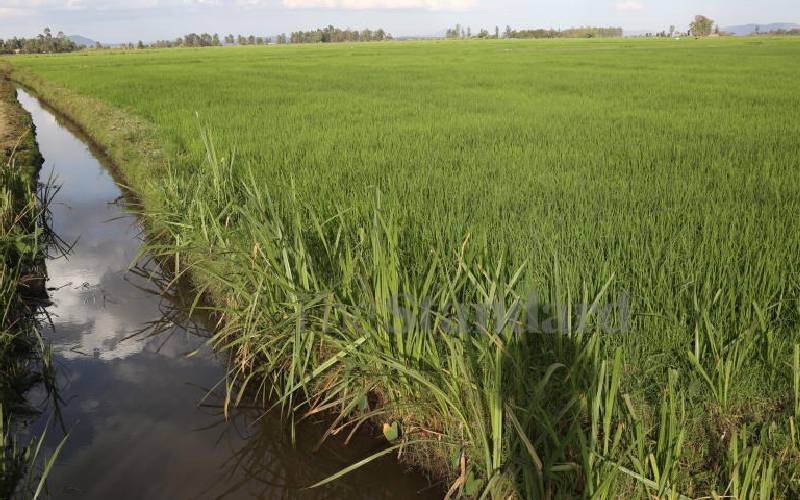Deep in the heart of Kirinyaga County, Mwea Tebere Region, a small-scale rice farming business is flourishing. Registered as a sole proprietorship business which has been in existence for four years, Clarance Enterprises mainly focuses on agribusiness with the main objective of providing food and employment to members of the community. Jane Muguchu, the founder of Clarance Enterprises explains that she leases land from farmers to grow rice in the Mwea Irrigation Scheme, offers mechanized cultivation services to farmers at a fee per acreage and buys rice in bulk from farmers during harvest in December when the prices are lower due to high supply and later sell the rice when the prices are favorable. “As a business owner, I decided to indulge in agribusiness because my satisfaction is to see crops growing and eventually, they become food for many,” she says. Ms. Muguchu further explains that the idea of engaging in both farming and buying of rice from farmers was guided by factors such as the business as a source of income and livelihood.
“When I buy rice during harvest at a lower price, then sell later after the prices have improved, I am able to get some income and create employment since I engage people from the community in all the operations.” As for mechanized cultivation services, she takes pride in her capacity and ability to offer these services as far as Narok where farmers engage in wheat farming and Kitale where farmers mainly grow maize. Back home, she says most farmers rely on her tractors for rice and horticultural farming. Since the inception of the enterprise, the tractor business has been doing well; Two-three employees are able to get their livelihoods. For rice business, they engage up to ten employees based on the volume of work to support the sourcing, drying, storing and selling. Looking at the entire engagement and operations channel, Clarance Enterprises is directly or indirectly impacting lives considering the rice sold to business people also create an avenue for more job opportunities.
COVID – 19 has not impacted her business significantly, since the business leases land from farmers a year earlier and therefore the farming is currently ongoing. Nevertheless, considering that the business depends mainly on savings or profit ploughed back for its operations, the delay in payment of goods and services offered has negatively affected the smooth flow of the business. Just like there are challenges in business, Clarance Enterprises is not an exemption. Capital for expansion is a major challenge. The business intends to expand in various facets and even explore other value chains like maize packaging and supply to millers. She says that her hope lies in the AgriBiz programme as a client. She anticipates getting financing so that she can expand the enterprise and reach more farmers in other value chains.





